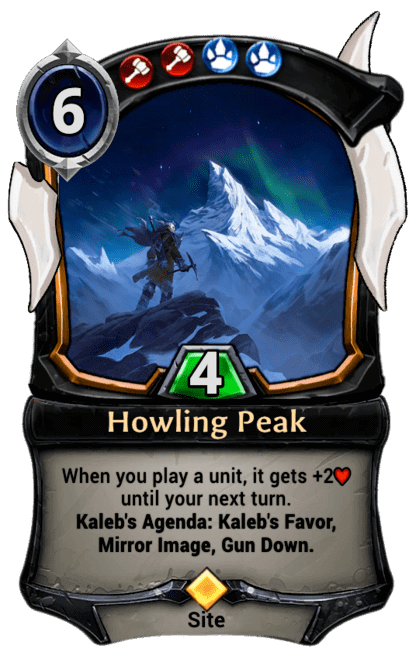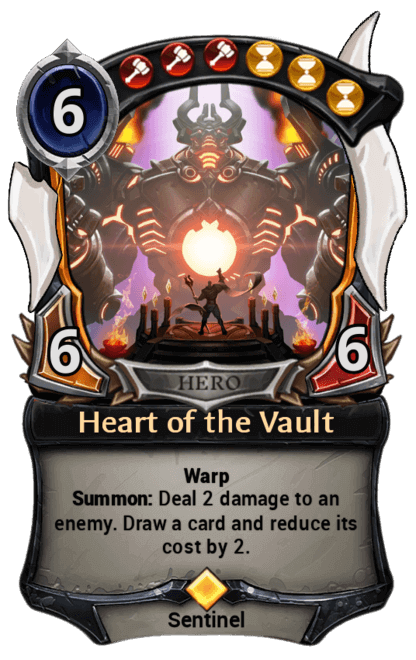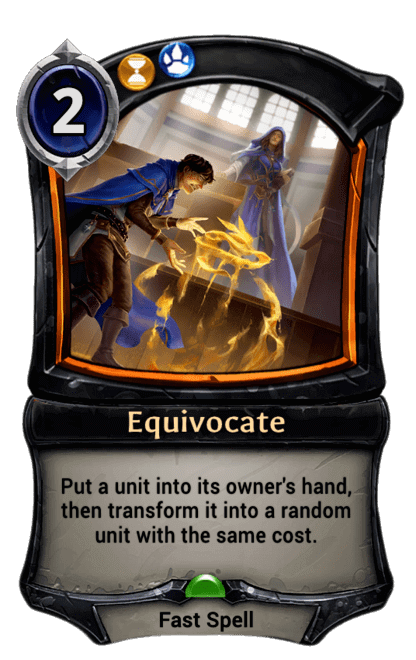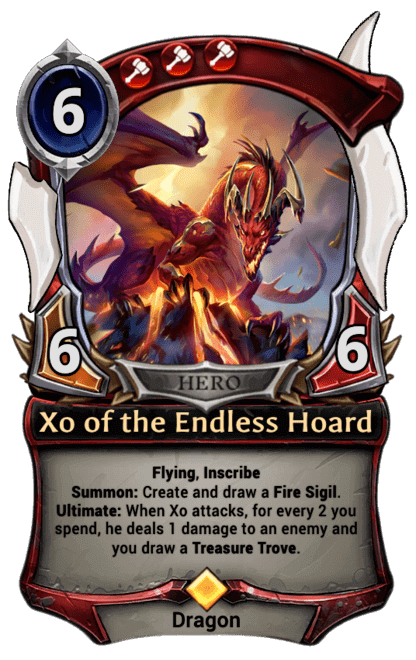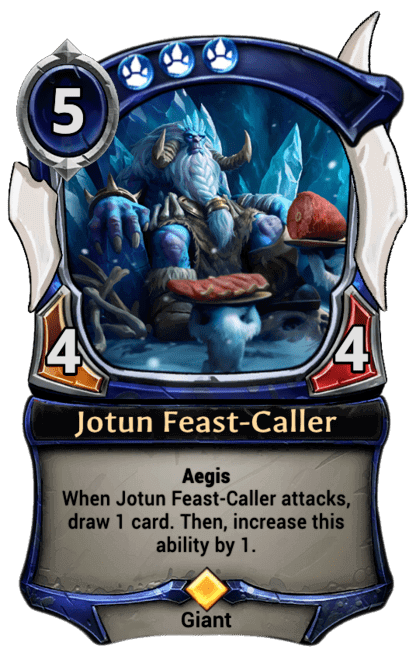Eternal Card Game
I’d like to introduce you to a game I’ve played quite a bit
lately,
Eternal.
I am going to talk a bit about how to play, but
many people have done that
already, so what I am going to focus on first is why you should give this digital
card game a shot.
Summary:
- The economy is
excellent. You will not find better
value for your time than Eternal, or value for any money you choose to spend.
-
- The play modes are all very good, and most are
extremely time-efficient.
- Play vs the computer to learn and experiment, a very
low stress experience.
- An excellent all-human draft mode.
- Ranked leveling up that is not much of a grind.
- Very easy to learn, with or without a MTG
background (my wife is pretty good at all the
game modes, and has no prior CCG experience)
- A ton of excellent cards, build-arounds, for all
deck archetypes and colors.
- A great engaged community
Give it a try, it is one of the best games I’ve played.
The Economy
This game is extremely free-to-play friendly.
Your first win each day gives you a
pack of the most recent set.
You get a quest each day that can give you 500 gold worth of
quests, and maybe a pack.
You are not pressured
into playing a bunch each day to collect rewards, but you can get
reasonable rewards for your first 3, 6, 9 wins in ranked each day. (around 300
gold per 3 wins)
The vs AI modes are
actually moderately profitable, and super-fast (more on the AI modes later)
You can destroy cards you don’t want, to make cards you do, at a ~4:1
rate. Premium (foil, shiny) versions of
cards roughly make any other card of that same rarity. MTGA has a rate of roughly 100:1, which is
absurdly bad in comparison.
You get “Shiftstone”,
the card crafting material just for
opening packs, which helps you craft the cards you want.
My wife and I each put $40 into the game, just because your
first purchase gives you quite a bit of rewards, and we wanted to give back to Dire Wolf for making such an amazing game. This is by no means mandatory, but I have no
regrets (closing in on 100 days played in steam…)
You can spend money to speed things up if you want, but I
haven’t found that necessary at any point, beyond my minor investment described
above.
The only thing that requires dollars to be spent are cosmetic items. Everything else can be bought with Gems (the real
money conversion in the game) or gold. There are some cool items, like your personal
avatar, card backs, “totems” (statues that sit on the battlefield and are
interactable), that are gems-only, but they are not required in any way to have
fun playing the game.
Magic: Arena is a joke compared to Eternal from the economy
perspective.
Multiple
studies
have been done comparing the cost of building a budget and competitive deck in
the various competitors, and
Eternal is roughly
a factor of two more efficient than the competitors.
The rank-up benefits through the first few tiers of vs-AI mode are extremely generous.
The cost to enter events is generally similar to the cost of
buying packs from the store directly (don’t
buy packs from the store directly), and then you get some kind of bonus,
either even more packs from playing the games, gold rewards, cosmetic items,
random cards of high rarity if you do well, and so on.
In other game systems, you pay a premium to enter an event,
and you have to do extremely well to break even. It is hard to find a game mode
in eternal that is not far superior to buying packs directly, when the
opposite is so often true elsewhere.
VS-AI Modes – Excellent!
One of the hardest
things psychologically in online PVP games is that someone has to lose.
Also, it can be very
intimidating as a new player to go into a game against a faceless opponent
who likely is far more experienced than
you, has more cards, more knowledge of the system, and you have to overcome
quite a bit before you can get to a point where you are winning more than you
lose.
Eternal solves this
to some extent with the VS-AI modes.
They have a gradient of difficulty through the ranks (Unranked, Bronze,
Silver, Gold, Diamond, Master, and a secret high master rank where the AI gets
more powerful cards the more you beat it).
These modes are quite generous in their payouts up to the
Master rank, which can fuel forays into other modes, and generally serve as a way to get gold into the economy and ramp up new
players on mechanics, in a safe environment.
After Master difficulty, they are still a good psychological
result (you can have a high win rate vs the computer). They serve as a sandbox to try things out
(Gauntlet) or build your collection (Forge) in a very low-pressure environment.
The VS-AI modes are extremely play at your own pace. The computer gives you as much time as you
want to make all decisions (nothing is timed, unlike player-vs-player modes),
and acts extremely quickly, to the point that I can often complete a Gauntlet
(7 games) in the time it takes me to play two games in ranked. There is no queue, no waiting, and if you
need to take a break to take care of your daughter, eat dinner, or whatever
other real-life thing intervenes, you can basically pause and come back. This is extremely helpful.
The computer behaves quite predictably in what it does, so
you can take advantage of this with certain cards or strategies. Victory is by no means certain, but it is fun
to win, and there is a strong psychological bonus to beating the stupid
computer =)
The only place it feels a bit unfair (at Masters) is in the Forge
environment, where you roughly have as good a deck at Masters, as Bronze, but
you can be facing multiple very difficult to defeat cards or strategies from
the AI. Still, you have a loss to give
even in that mode, and even with these handicaps, I believe it is possible to
average high enough to make even this a profitable long-term play mode.
Draft – Excellent!
Eternal uses a “asynchronous draft” system. Every pack you get passed is the result of a
real human interaction with a pack, and the same chain of humans is upstream of
you with each pack. This continues in whatever
direction you want to perceive it as until the first pack is over. Then for the second and third packs, the same
thing happens in a different direction (from a different upstream chain of real
players). Pack 4 you’re back to the
pack 1 chain of players, and that’s the draft.
This is in almost every way superior to a “traditional”
draft. It has the following advantages:
- Pick at your own pace. You have as much time as you want to make a
pick, in case you need to think, or real life intervenes.
- There is no waiting whatsoever between
picks. You can finish the 48 picks in a
draft in 1-5 minutes if you are fast, good luck finishing a human-MTG draft in
less than 30 minutes.
- “Wheeling” is replaced by every pack being new, which
I have found to be far better than wheeling anything. You can get high pick quality cards in the
later picks, which is something that will just never happen in a real draft.
- You are making 45 card decks (instead of 40),
but you have more cards (48 vs 42), more rares/uncommons (4 packs vs 3), and as
previously mentioned, if you read well you can get at least a playable out of
the last 4 picks in a pack, something quite unlikely in a traditional draft.
- You don’t have to wait to start the draft, you
don’t have to wait until x players are ready.
The “Downsides” are
- The lack of wheeling (irrelevant IMO, or even a upside)
- When you swap to pack 2, they use an algorhythm
to choose what historical real pickers they should choose as your effective
downstream players. So, if you don’t
pass any , it is more likely that the people that pass to you
won’t have had any in their pile after pack 1. It’s not the actual same people on the swap
from pack 1 to 2+3, but it is pretty reasonable.
MTGA can’t figure out how to do human drafts at all, and MTGO
can’t do them efficiently, but Eternal has been doing them for years in a truly
excellent player experience with asynchronous drafting.
The cards themselves are great for draft, it feels like
there are quite a few playables, good fixing for formats that need it, and
aggression, control, ramp, are all reasonable strategies.
"Rare drafting” for the Shiftstone is a viable strategy,
especially for new players, to maximize growing their collection.
Play skill is a strong factor, you see the same players in
the top of the standings each month, and it is possible to make Masters (for
the shiny legendary at the end of the month) with some dedication (10-15 drafts
or so).
The Influence System.

You know what’s fun?
Not
figuring out how to tap your lands to cast your spells, or have the computer do
it wrong for you.
Eternal keeps it simple There is Influence (the colors/symbols
with numbers under them), and Power (the 7/7 or 8/8 in the image above). Influence is a prerequisite, that is not spent
at any point, but always available to meet the requirements of your cards. Power is a pool that refreshes each turn to
play your spells.
This system is phenomenally better for drawing out of poor power/land
situations. If you had no Red/Fire for
the first few turns, and then draw one (even a depleted Fire), you can
immediately start casting all of your single-influence Fire spells. With MTG and the tap-your-lands system, you will
be waiting several turns to play your spells, which increases the number of
non-games (in MTG, vs Eternal)
I like the variety of power/lands that are available. There are good power for unit decks, control
decks, midrange decks, two color, three color decks, one color decks…. There are payoffs for being single color, or
spell-lands. It’s just great.
The Defender-Chooses-Blockers system.
In Hearthstone, the attacker chooses where the damage is
going, which is incredibly powerful for whomever is attacking. Magic does it better, in my opinion, and
Eternal reuses this mechanic. This
increases the interaction between the players, and helps the defender out a
bit, which is something that is probably net positive for a game like this.
The Battle Skills/Abilities.
There are a ton of useful, viable, intriguing battle skills/Keyword
abilities in Eternal.
Don’t know what they
are? There is in-game hover text for
everything that is keyworded.
Don’t know what a card created by a card is? Hover text.
You can even tell that an ability has been used, because it
is greyed out. Simple, straightforward.
Want to see some tips and tricks for using them? There are a whole lot of “puzzles” in the
game that explore the possibilities with certain mechanics. I personally like them quite a bit, they seem
like a great teaching tool. (and they
should add more!)
There is something like 15 “battle skills” and quite a few
keyword abilities. I can talk for quite
some time about each, and it is quite difficult to even say what the top 3
would be. I just keep thinking of more
of them that I like!
There are also several battle skills (Overwhelm (trample), Quickdraw
(first strike)) that only work on offense.
For Quickdraw especially this prevents some board stalls from stacked “first
strike” blockers.
The Digital Environment.
Eternal does a good job of utilizing the digital environment
innately. They get quite a bit of
benefit in the design space for not having to deal with a paper implementation.
Abilities like Warcry, Revenge, Aegis, Silence, Berserk,
Destiny, Fate, Echo, Killer, persisting information in zone changes, tokens
going to the void, would all difficult to implement in a game like MTG.
If you are a fan of streaming, Eternal has done some serious
work to enable a great viewing experience by allowing you to hover over cards streamers
are playing on twitch, see their deck-lists, it’s amazing!
Best of One + Merchants.
Fast, powerful, versatile,
very interesting from deckbuilding, and with new flavors coming out in recent
expansions, this is a really good system for Eternal, and I would dub it superior
to best of 3 + sideboard.
Eternal had a sideboard for a while, but no one is talking
about sideboards now that markets exist.
It is just better to play three games with half a sideboard
then play a very long single match, and then try to play in a tournament with
that extremely clumsy scheduling of “the speed of the slowest person”.
Eternal does have best of 3 or best of 5 for big tourneys, but
I would not want to play best of 3 for ranked, draft. It’s just too slow, and what is the benefit? The good player or match-up “wins for real”
slightly more? That is not a benefit for
half the players, who would rather be on to the next game, where they have a
better shot of having fun.
The Deckbuilding Possibilities.
There are so many synergy cards, build-arounds, that I always
have something to think about.
There is real, credible competition for most slots, where
you might choose one creature over another for one aggro deck, but for another
aggro deck with a slightly different overall strategy, you might play quite a
few different creatures, even in the same color combinations. That is truly impressive.
There are aggressive, midrange, control, and ramp tools in
every color, each with their own outlook, flavor, advantages, and
disadvantages.
As you will see in future posts in the topic of Eternal deckbuilding,
there are a TON of directions you can go, and options for each point on your
curve.
Constantly Evolving Meta
Every month or two there is a new card released as a free
daily quest reward. There are new sets
at a reasonable frequency. They have
campaigns, or mini-expansions about once per set release.
Every week or two there is another mini-Event, generally a riff on the existing format, with a rules change that shakes everything up. This is an excellent opportunity to build new and interesting decks for that rules set, and it is difficult for their to be a "best" deck and for that format to get boring before it wraps up.
They can make adjustments to the power level of cards, and
tend to buff as much if not more as they nerf, which is a good design philosophy.
They are very generous when they nerf, giving full disenchant
values for even side-grade changes to cards.
The Community
There are multiple active "teams" putting out content for the various PVP modes. Twitch support is great, so solid streaming content is always available. The Eternal SubReddit is active and engaged in trying to make Eternal a better game, giving feedback to the developers and helping each other learn from one anothers Drafts, Event Deck-Building, and so on.
Summary
Eternal really is an excellent game. You should really give it a shot. It is exceptionally free, exceptionally
respectful of it’s players time, and has a truly stunning pool of cards begging
to be put in decks, to become the next Tier 1 monstrosity.
Why haven’t you heard
about it if it’s so great? Well, one of
the community complaints is a lack of advertising to make more people aware of
the game, but this historical trend is starting to reverse itself. You may have seen ads for Eternal on
ChannelFireball.com, and other locations.
Louis Scott-Vargus, CFB VP is one of the designers/developers of
Eternal, as well as well-known Magic: The Gathering professionals Patrick Chapin,
Patrick Sullivan, Conley Woods, Josh Utter-Leyton, Michael Jacob, and many more!
You can expect to see more Eternal content in the coming weeks
and months, the floodgates are about to open =)
